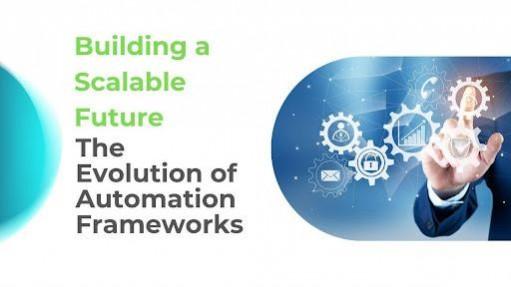
In today's digital age, businesses are racing to innovate, automate, and optimize their operations. As companies seek to adapt to an increasingly complex and competitive landscape, scalable automation frameworks are emerging as the linchpin of organizational efficiency. Devesh Gupta, an expert in automation systems, explores these cutting-edge advancements and their far-reaching impact on the modern business environment.
A New Era of Automation
The automation market has surged, fueled by increasing software complexity, the need for rapid deployment, and cost reduction. Automation testing alone was projected to surpass $20 billion by 2027. Today, businesses seek comprehensive, scalable solutions that grow with their needs, moving beyond isolated processes. This shift has spotlighted scalable automation frameworks that adapt, evolve, and support continuous business growth, reflecting the critical demand for flexible, future-proof automation strategies.
The Case for Scalability
Scalability is crucial for growing businesses, enabling their operations and systems to expand efficiently. A scalable automation framework future-proofs operations, optimizing resources and maintaining consistency while avoiding costly overhauls. This adaptability allows companies to quickly adopt new technologies, enhance efficiency, and respond effectively to changing market conditions. Organizations using scalable systems report faster innovation and improved competitiveness. Scalable solutions are essential for long-term success and agility in evolving industries, ensuring businesses remain resilient and responsive to future challenges.
Strategic Steps to Build Scalable Systems
To build a successful automation framework, businesses should assess current processes to identify tasks suited for automation, such as repetitive or error-prone activities, to enhance efficiency. Setting measurable goals aligned with business strategy is crucial for tracking progress. Selecting scalable, flexible technologies that integrate well with existing systems is key. Solutions like Robotic Process Automation (RPA) and cloud-based platforms enable companies to manage growing workloads while maintaining performance across routine and complex tasks.
The Importance of Iteration and Feedback
Before scaling automation, piloting new systems on low-risk, high-impact processes is essential for refining frameworks and addressing early challenges. Continuous monitoring and stakeholder feedback enhance system functionality and user satisfaction. This iterative approach ensures the framework evolves with business needs, leading to better automation outcomes. Companies using this strategy report a 25% increase in operational efficiency. Gradual refinement helps businesses maintain effective, long-term automation frameworks aligned with success goals.
Governance and Change Management: The Backbone of Success
Successful automation demands strong governance and effective change management. Governance provides control, consistency, and security, driving better returns by setting clear roles and standards. Change management addresses the human element, emphasizing clear communication, training, and managing concerns to gain employee support and reduce resistance. Companies excelling in this area see faster adoption and higher employee satisfaction, underscoring the importance of balancing technical governance with a focus on people for automation success.
The Future of Automation
The future of automation frameworks will hinge on scalability, flexibility, and integration with new technologies. As digital transformation accelerates, combining RPA with artificial intelligence will become critical. The demand for cloud-based, serverless automation is rising, enabling organizations to scale without heavy infrastructure management. By 2027, the global market for automation tools is projected to exceed $83 billion, highlighting their growing significance. Businesses that focus on scalable automation will enhance efficiency, reduce costs, and drive innovation, positioning themselves to capitalize on this expanding market.
In conclusion, Devesh Gupta emphasizes that building a scalable automation framework is not just about technology—it's about creating a foundation for future growth and adaptability. By focusing on scalability, governance, and continuous optimization, businesses can unlock the full potential of automation and secure their place in the competitive digital landscape. As organizations continue to evolve, scalable automation will remain at the heart of their success, driving both innovation and efficiency.









